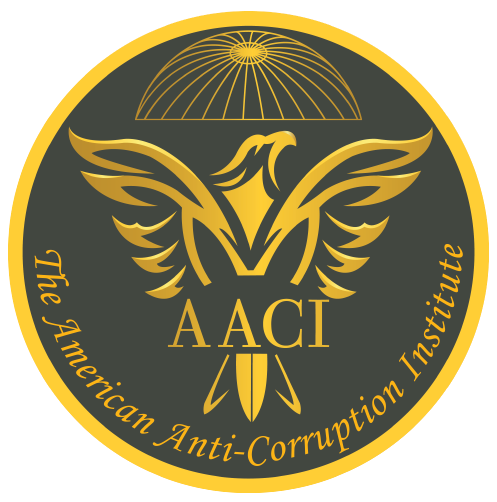The AACI Anti-Corruption Concepts
The AACI Anti-Corruption Concepts
Overview

At The American Anti-Corruption Institute (AACI), we do more than fight corruption — we shape the intellectual frameworks that guide ethical governance, institutional accountability, and leadership integrity.
This page presents original anti-corruption concepts and frameworks developed by The AACI. These contributions are informed by The AACI’s experience in anti-corruption research, education, capacity-building, and strategic observation of public and private governance environments.
Each concept listed below is an original contribution by The AACI to the global anti-corruption field. We invite policymakers, researchers, and reformers to explore, cite, and implement these frameworks in their efforts to prevent and defeat corruption.
Featured Concept: Performative Integrity
Status: First published by The American Anti-Corruption Institute (AACI)
Date: May 5, 2025
Author: Mike Masoud
Citable Source: https://www.theaaci.net/performative-integrity
Concept Summary
Performative Integrity is a groundbreaking framework that redefines how institutions demonstrate, maintain, and institutionalize integrity. Unlike traditional models of compliance, which emphasize declarations and formality, Performative Integrity focuses on the active, visible, and systemic execution of ethical leadership.
Integrity is not merely a stated value — it is a practiced and observable behavior embedded into the decisions, actions, and accountability structures of organizations and public institutions.
Why It Matters
This concept confronts the global pattern of symbolic integrity — policies and codes of conduct that lack operational effect. It proposes an alternative that:
- Measures integrity through performance and impact;
- Prioritizes prevention over reaction;
- Embeds ethical leadership into every layer of institutional structure;
- Supports decision-makers in performing integrity under real-world pressures.
Core Elements
- Ethical Accountability at the Top
- Institutionalization of Prevention
- Visibility and Transparency
- Performance Over Declarations
-
Alignment with The AACI’s Ten Principles of Fighting Corruption, especially:
- Effective internal control
- Investment in corruption prevention
- The pervasiveness of the rule of law
- Power and accountability
Application and Impact
Institutions applying this framework will:
- Reengineer decision environments around ethical behavior;
- Strengthen the tone at the top;
- Implement measurable indicators of integrity;
- Shift from ceremonial anti-corruption gestures to meaningful, enforceable action.
Our Published Anti-Corruption Concepts
The AACI develops original frameworks to help institutions strengthen integrity and reduce corruption risks. The following concepts are publicly available and may be cited, studied, or applied with appropriate attribution:
A framework that redefines integrity as an institutional performance — visible, measurable, and embedded in governance systems.
Anti-Corruption Intelligence
A strategic approach that equips institutions and decision-makers with actionable intelligence to prevent, detect, and respond to corruption risks systematically.
Engage with Us
If you are a policymaker, academic, or institutional leader and would like to apply or further explore any of The AACI's anti-corruption concepts, please contact: info@theaaci.com
Learn more about The Ten Principles of Fighting Corruption (Click here)
